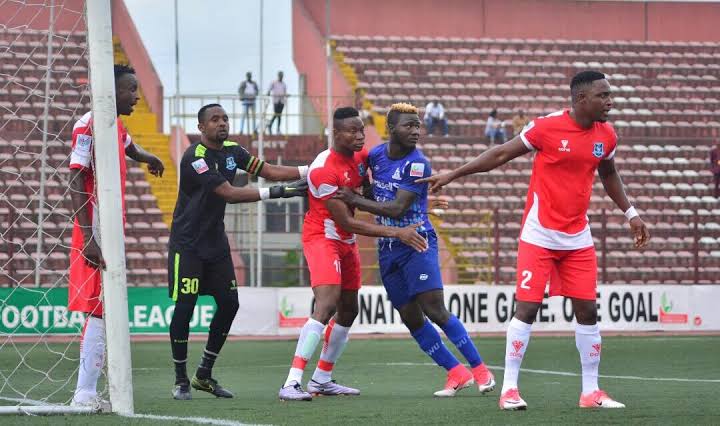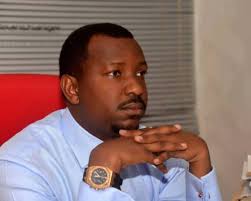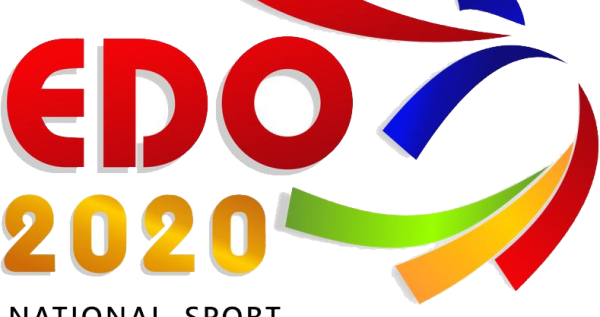NPFL AT 30: How Professional Is The League?

1,302 total views, 6 views today
Football was first played in Nigeria in 1904, but it took the country another 86 years to start playing the game professionally in 1990. That must have been a very long walk through the amateurish wilderness.
On May 12th 1990 at the Onikan Stadium Lagos, the Nigerian National League was renamed “Professional League” (Pro- League) with a major aim of modernizing football in Nigeria towards enabling various teams participating in the league to be self-efficient. Subsequently, Decrees 10 and 11 were promulgated to lay credence to the Pro-League, thus, codifying the introduction of professional football in Nigeria:
From May 1990 till date, it has not been a smooth ride for the Nigerian football league, it has been through very good, very bad and very ugly times and seasons characterized by great successes, failures, violence, allegations of misappropriation and bribery, security breach and a whole lot of unmerry-go-round experiences much to the displeasure of the fans who are the end consumers of the board-room politics, stadium management and on the pitch drama that has either promoted or demoted the professionalism in Nigerian football league the last 30 years.

One School of Thought believes a football league can only developed at the pace of the country its domiciled, meaning the country’s development affects the league’s development vis a vis professionalism.
Merriam-Webster dictionary defines Professionalism as ‘the conduct, aims, or qualities that characterize or mark a profession or a professional person.’ In the simplest language, professional football is football played for pay. It made its debut in Nigeria with a total of sixteen clubs signing up for the premier division with Iwuanyanwu Nationale now Heartland of Owerri winning the first professional football league trophy. What started as sixteen teams has now metamorphosed into a twenty-team league.
Trust remains the soul of any relationship, when the fans trust the league management’s ability to organize a ‘professional league,’ their support and loyalty to the league can never be in doubt. Sadly, this seems to be the misfortune witnessed in the league in the early 2000s when things started falling apart.
There are components of professional league which includes: Adequate welfare packages, constant paying of salaries, prompt settlement of sign-on-fees, adequate security on match venues, licensing of football clubs, provision of good pitches, provision of club houses, adequate handling of players transfer, high quality officiating and provision of good and adequate infrastructure just to mention but a few. Most of the above mentioned if not all are not properly done in the Nigerian football league and has greatly depopulated the NPFL fan base and populate the EPL fan base in Nigeria. So you will see proud Chelsea, Arsenal, Liverpool, Manchester United fans and very little number of fans supporting the local teams.
In a country of over 180 million people, twenty match venues should not be a problem to be filled up as was the case then when Rangers of Enugu or IICC Shooting Stars were in the Paradise City to face Calabar Rovers, but what is there now for the fans as an attraction? Weekly, reports of violence caused some times by poor officiating and most times by supporters of the home club side as a result of “A Must Win At Home Syndrome” has completely thwarted development of football in Nigeria.
Nigeria is ranked 5th highest exporter of football talents in the world. Experts believe that poor management of the Nigerian League contributes to these exports. Nigeria’s bane is that our football is not managed well, what is needed is the development and effective management of the League in an environment of high level human resources, towards meeting the European standard. These exports have led to the movement of Nigerian players to play professional football in some African countries like Tunisia, Algeria, Egypt, Libya, Congo, Sudan and South Africa and to other less fancied football countries like Haiti, Azerbaijan, Vietnam, Malta and China, including Armenia.
Following difficult and unimaginable legal, contractual, financial and administrative impediments, the League Management Company was commissioned by the Nigerian Football Association, owner of the Nigeria Professional Football League in 2012 to operate, organize and regulate the elite division of the league to meet world standard technically, commercially and otherwise with Nduka Irabor as the Chairman.
Kudos must be given to the Irabor-led LMC who on inauguration brought in some innovations that included among others development and adequate management of match indemnities for match officials, sanctions on clubs that are unable to pay wages and allowances to their players. The LMC aided in getting sponsorship deals from companies such as Telecom giants Globacom as well as TV Rights from “Super-Sports”. They also up-graded live scores platform where football followers can follow scores update with their Twitter and Facebook accounts. For the clubs, the LMC also improved the Merit bonuses.
However, eight years down the line, the NPFL has returned to Ghost-mode, without a sponsor, no television right, irregularities, poor pitches and infrastruture, inadequate welfare services, poor handling of players transfers, no good medical service, non payment of salaries and wages among other inadequacies that further cast aspersion on the professionalism of what is played in Nigeria. All of these have not only forced the fans away from the league but have also contributed to the country’s poor showing at continental competitions with no impact in over ten years.

The world has not only left us, but Africa is gradually leaving Nigeria behind too if urgent steps are not taken to salvage football and bring back the touch of professionalism to the game, on and off the pitch.
The LMC under Shehu Dikko has a lot to do to return Nigerian football league to a professional state, far above what is obtainable now or atleast to how he met it, with a sponsor, TV rights, better referees remuneration, training and retraining of referees, seminars and workshop for fans, players and officials, improved stadium security, regular inspection of stadium and facilities, especially medical etc.
It is not a mission impossible. Nigerian football and the fans deserve better, we cannot be in the year 2020 and still miss how enjoyable, committed and supported Nigerian football was in the 90s.
Let the deafening silence that greeted the commemoration of the league’s 30th anniversary be a wake up call to the Sports Ministry, NFF, LMC, NRA and all other stakeholders because how professional the NPFL is, is still a very difficult question to answer.
Bassey Ibiatisuho
A Sports Journalist in Uyo.




